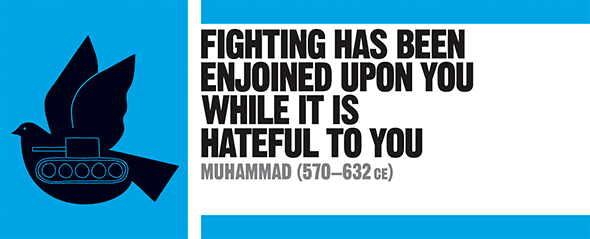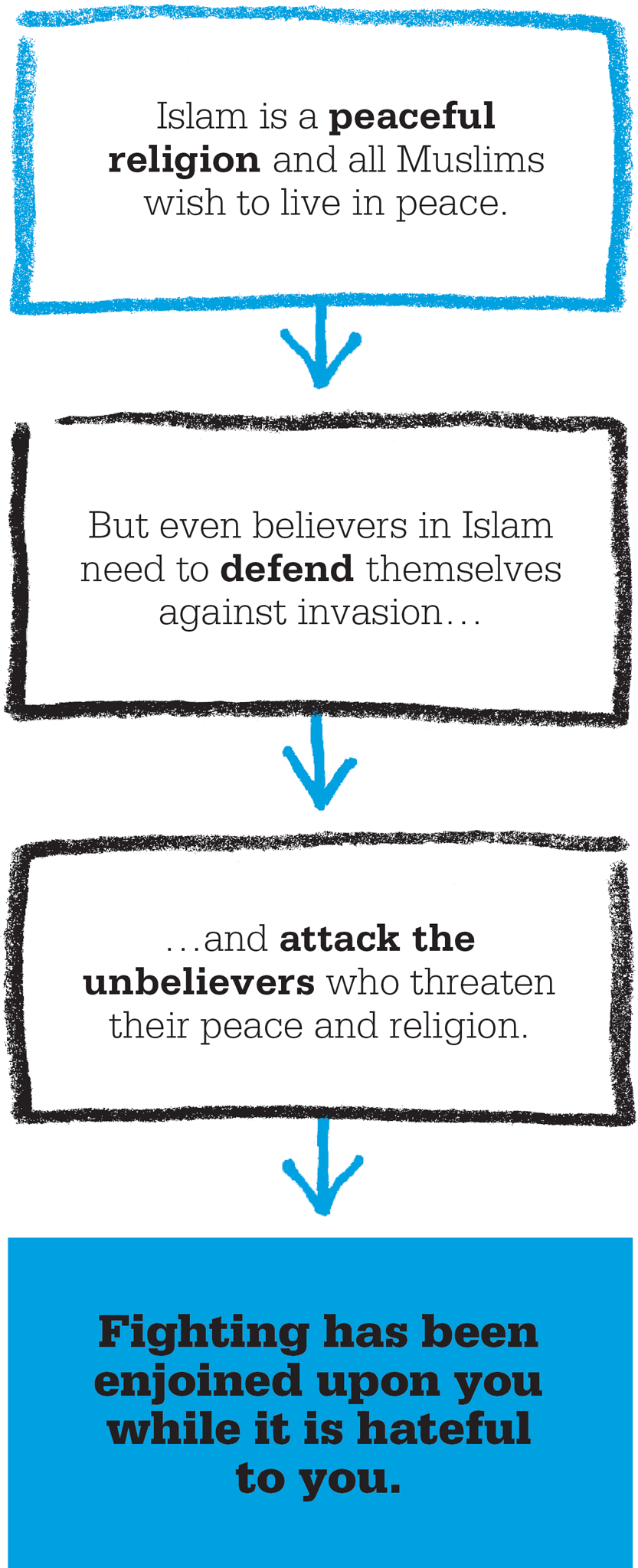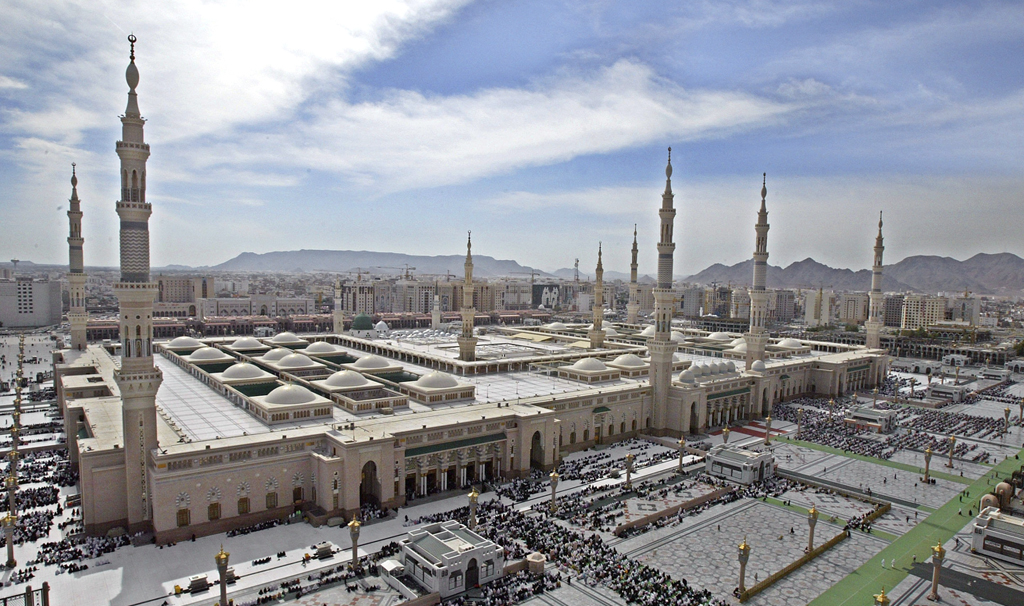
IN CONTEXT
Islam
Just war
6th century BCE In The Art of War, Sun Tzu argues that the military is essential to the state.
c. 413 Augustine describes a government without justice as no better than a band of robbers.
13th century Thomas Aquinas defines the conditions for a just war.
1095 Christians launch the First Crusade to wrest control of Jerusalem and the Holy Land from the Muslims.
1932 In Towards Understanding Islam, Abul Ala Maududi insists that Islam embraces all aspects of human life, including politics.
Revered by Muslims as the prophet of the Islamic faith, Muhammad also laid the foundations for an Islamic empire; he was its political and military leader as much as its spiritual guide. Exiled from Mecca because of his faith, in 622 he traveled to Yathrib (on a journey that became known as the Hijra), where he gained huge numbers of followers, and ultimately organized the city into a unified Islamic city-state. The city was renamed Medina (“city of the Prophet”), and it became the world’s first Islamic state. Muhammad created a constitution for the state—the Constitution of Medina—which formed the basis of an Islamic political tradition.
The constitution addressed the rights and duties of every group within the community, the rule of law, and the issue of war. It recognized the Jewish community of Medina as separate, and agreed reciprocal obligations with them. Among its edicts, it obliged the whole community—members of all the religions in Medina—to fight as one if the community came under threat. The key aims were peace within the Islamic state of Medina and the construction of a political structure that would help Muhammad gather followers and soldiers for his conquest of the Arabian peninsula.
The authority of the constitution was both spiritual and secular, stating, “Whenever you differ about a matter, it must be referred to God and Muhammad.” Since God spoke through Muhammad, his word carried unquestionable authority.

Peaceful but not pacifist
The constitution confirms much of the Islamic holy book known as the Quran, which it predates. However, the Quran is more detailed on religious duties than political practicalities. In the Quran, Islam is described as a peace-loving religion, but not a pacifist religion. Muhammad repeatedly stresses that Islam should be defended from unbelievers, and implies that this may in some cases mean taking preemptive action. Although violence should be abhorrent to a believer in Islam, it can be a necessary evil to protect and advance the religion, and Muhammad states that it is the moral obligation of all Muslims to defend the faith.
This duty is encapsulated in the Islamic idea of jihad (literally “struggle,” or “striving”), which was originally directed against neighboring cities that attacked Muhammad’s Islamic state. As these were conquered one by one, fighting became a way of spreading the faith and, in political terms, expanding the Islamic empire.
"Fight in the name of Allah and in the way of Allah. Fight against those who disbelieve in Allah."
Sunni Hadith
While the Quran describes jihad as a religious duty, and fighting as hateful but necessary, it also states that there are strict rules governing the conduct of war. The conditions for a “just war” (just cause, right intention, proper authority, and last resort) are very similar to those that evolved in Christian Europe.

Muslim pilgrims pray near the Prophet Muhammad Mosque in the holy city of Medina, Saudi Arabia, where Muhammad established the first Islamic state.
MUHAMMAD
Muhammad was born in Mecca in 570, shortly after the death of his father. His mother died when he was six, and he was left in the care of his grandparents and an uncle, who employed him managing caravans trading with Syria. In his late 30s, he made regular visits to a cave on Mount Hira to pray, and in 610 he is said to have received his first revelation from the angel Gabriel. He began preaching and slowly gained a following, but was eventually driven from Mecca with his disciples. Their escape to Medina in 622 is celebrated as the beginning of the Muslim calendar. By the time of his death in 632, nearly all of Arabia was under his rule.
Key works
c.622 Constitution of Medina
c.632 The Quran
8th and 9th centuries The Hadith
See also: Augustine of Hippo • Al-Farabi • Thomas Aquinas • Ibn Khaldun • Abul Ala Maududi • Ali Shariati
